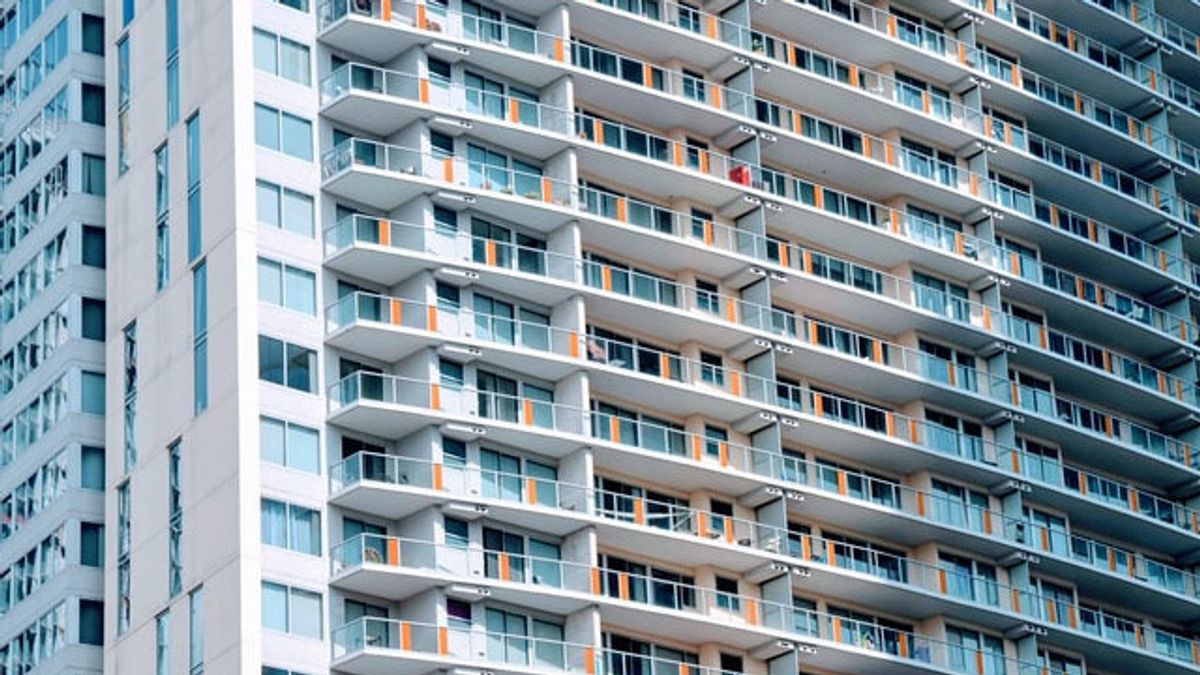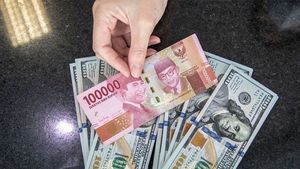JAKARTA - China has provided new homes for more than 9.6 million people in the last five years. They can get various benefits ranging from low prices and various facilities in the Chinese Government's program to alleviate poverty. But unfortunately, this program is considered to still leave problems, one of which is related to the unavailability of places of worship.
China's severe poverty alleviation program is unmitigated. They not only build housing, but also form a new ecosystem that can improve the welfare of their citizens.
Deputy Civil Affairs Minister Wang Aiwen said 35,000 communities providing homes, schools, jobs and medical services had been formed to accommodate their citizens. "This is our contribution to global efforts to eradicate poverty," Aiwen said in a press conference quoted by the South China Morning Post, today, November 9.
Aiwen said that currently his country had entered a new phase to provide support to the people who had been relocated. "In particular, there are two important questions: can we make sure the program is sustainable, and will it make people rich?" said Aiwen.
The Chinese government is targeting 2020 as a deadline for eliminating severe poverty throughout the country. To make it happen, the Chinese government has disbursed a jumbo budget of more than 600 billion yuan or nearly 1.3 quadrillion rupiah.
To get the new house, people only need to pay around 10,000 yuan or if it is converted into around IDR 21,334,553. The low price fix made it easier for Communist Party officials to persuade people to move.
This program has proven to be effective in reducing poverty. According to the World Bank, more than 850 million people have been lifted from extreme poverty. Meanwhile, the country's poverty rate also fell from 88 percent in 1981 to less than 1 percent in 2015.
The key to successful poverty alleviation is not enough to provide housing. Sun Guangxuan, an official with the National Development and Reform Commission involved in the program said a key element of the next phase after providing housing was providing training for people to help them find jobs in their new communities.
In addition, Guangxuan said China's Ministry of Human Resources and Social Security provides job training in communities of 800 people or more. They've also assigned teams to help people find jobs.
That leaves a problemDespite receiving a lot of benefits, this severe poverty alleviation program did not escape from problems. Chinese Agricultural University academic Kong Deji said many people struggle to adapt when relocated.
"In Yunnan, there are people who feel very uncomfortable in their new home because they can't make bacon. They prefer to go back to their old destroyed house," said Deji.
In line with Deji, Deputy Head of the Center for Rural Research and Revitalization of Xian University of Architecture and Technology, Li Bo, said relocation could be a problem for some families. "They feel the new flats are less comfortable than their country houses, but there is no turning back because their old house has been demolished," he said.
Another problem with this relocation process is that some residents have difficulty praying. As is known, most of the residents who were relocated were ethnic minority groups from Tibet, Qinghai and Xinjiang who were Muslim and Buddhist.
This was disclosed by an anthropologist from Beijing who asked to remain anonymous. He told SCMP that meeting the religious needs of the relocated people was a sensitive issue there.
"I have visited several families who have moved to their beautiful new homes, there is even a vineyard and yard for raising livestock. However, there is no place for them to worship," he told SCMP.
The English, Chinese, Japanese, Arabic, and French versions are automatically generated by the AI. So there may still be inaccuracies in translating, please always see Indonesian as our main language. (system supported by DigitalSiber.id)













